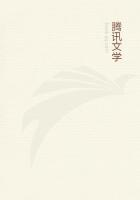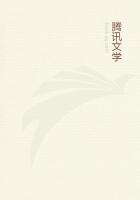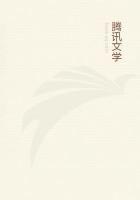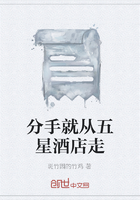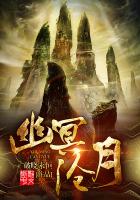Besides dwelling thus on the disgrace to me, she reminded me of the hardships of married life, to the avoidance of which the Apostle exhorts us, saying: "Art thou loosed from a wife? seek not a wife. But and marry, thou hast not sinned; and if a virgin marry she hath not sinned. Nevertheless such shall have trouble in the flesh: but I spare you" (I Cor. vii. 27).
And again: "But I would have you to be free from cares" (I Cor. vii. 32).
But if I would heed neither the counsel of the Apostle nor the exhortations of the saints regarding this heavy yoke of matrimony, she bade me at least consider the advice of the philosophers, and weigh carefully what had been written on this subject either by them or concerning their lives. Even the saints themselves have often and earnestly spoken on this subject for the purpose of warning us. Thus St. Jerome, in his first book against Jovinianus, makes Theophrastus set forth in great detail the intolerable annoyances and the endless disturbances of married life, demonstrating with the most convincing arguments that no wise man should ever have a wife, and concluding his reasons for this philosophic exhortation with these words: "Who among Christians would not be overwhelmed by such arguments as these advanced by Theophrastus?"Again, in the same work, St. Jerome tells how Cicero, asked by Hircius after his divorce of Terentia whether he would marry the sister of Hircius, replied that he would do no such thing, saying that he could not devote himself to a wife and to philosophy at the same time. Cicero does not, indeed, precisely speak of "devoting himself," but he does add that he did not wish to undertake anything which might rival his study of philosophy in its demands upon him.
Then, turning from the consideration of such hindrances to the study of philosophy, Heloise bade me observe what were the conditions of honourable wedlock. What possible concord could there be between scholars and domestics, between authors and cradles, between books or tablets and distaffs, between the stylus or the pen and the spindle? What man, intent on his religious or philosophical meditations, can possibly endure the whining of children, the lullabies of the nurse seeking to quiet them, or the noisy confusion of family life? Who can endure the continual untidiness of children? The rich, you may reply, can do this, because they have palaces or houses containing many rooms, and because their wealth takes no thought of expense and protects them from daily worries. But to this the answer is that the condition of philosophers is by no means that of the wealthy, nor can those whose minds are occupied with riches and worldly cares find time for religious or philosophical study. For this reason the renowned philosophers of old utterly despised the world, fleeing from its perils rather than reluctantly giving them up, and denied themselves all its delights in order that they might repose in the embraces of philosophy alone. One of them, and the greatest of all, Seneca, in his advice to Lucilius, says philosophy is not a thing to be studied only in hours of leisure; we must give up everything else to devote ourselves to it, for no amount of time is really sufficient hereto" (Epist.
73)
It matters little, she pointed out, whether one abandons the study of philosophy completely or merely interrupts it, for it can never remain at the point where it was thus interrupted. All other occupations must be resisted; it is vain to seek to adjust life to include them, and they must simply be eliminated. This view is maintained, for example, in the love of God by those among us who are truly called monastics, and in the love of wisdom by all those who have stood out among men as sincere philosophers.
For in every race, gentiles or Jews or Christians, there have always been a few who excelled their fellows in faith or in the purity of their lives, and who were set apart from the multitude by their continence or by their abstinence from worldly pleasures.
Among the Jews of old there were the Nazarites, who consecrated themselves to the Lord, some of them the sons of the prophet Elias and others the followers of Eliseus, the monks of whom, on the authority of St. Jerome (Epist. 4 and 13), we read in the Old Testament. More recently there were the three philosophical sects which Josephus defines in his Book of Antiquities (xviii. 2), calling them the Pharisees, the Sadducees and the Essenes.
In our times, furthermore, there are the monks who imitate either the communal life of the Apostles or the earlier and solitary life of John. Among the gentiles there are, as has been said, the philosophers. Did they not apply the name of wisdom or philosophy as much to the religion of life as to the pursuit of learning, as we find from the origin of the word itself, and likewise from the testimony of the saints?
There is a passage on this subject in the eighth book of St. Augustine's "City of God," wherein he distinguishes between the various schools of philosophy. "The Italian school," he says, "had as its founder Pythagoras of Samos, who, it is said, originated the very word 'philosophy'. Before his time those who were regarded as conspicuous for the praiseworthiness of their lives were called wise men, but he, on being asked of his profession, replied that he was a philosopher, that is to say a student or a lover of wisdom because it seemed to him unduly boastful to call himself a wise man." In this passage, therefore, when the phrase "conspicuous for the praiseworthiness of their lives" is used, it is evident that the wise, in other words the philosophers, were so called less because of their erudition than by reason of their virtuous lives. In what sobriety and continence these men lived it is not for me to prove by illustration, lest I should seem to instruct Minerva herself.


